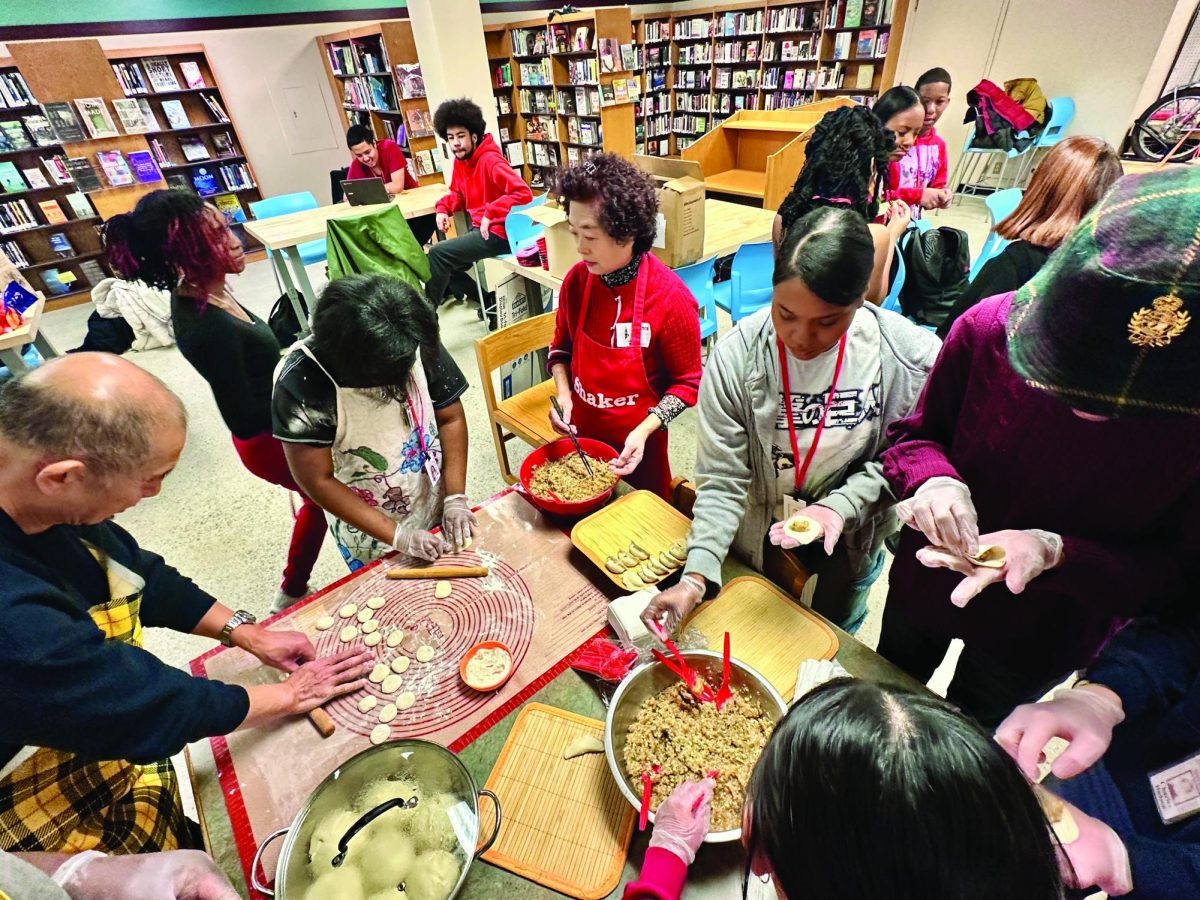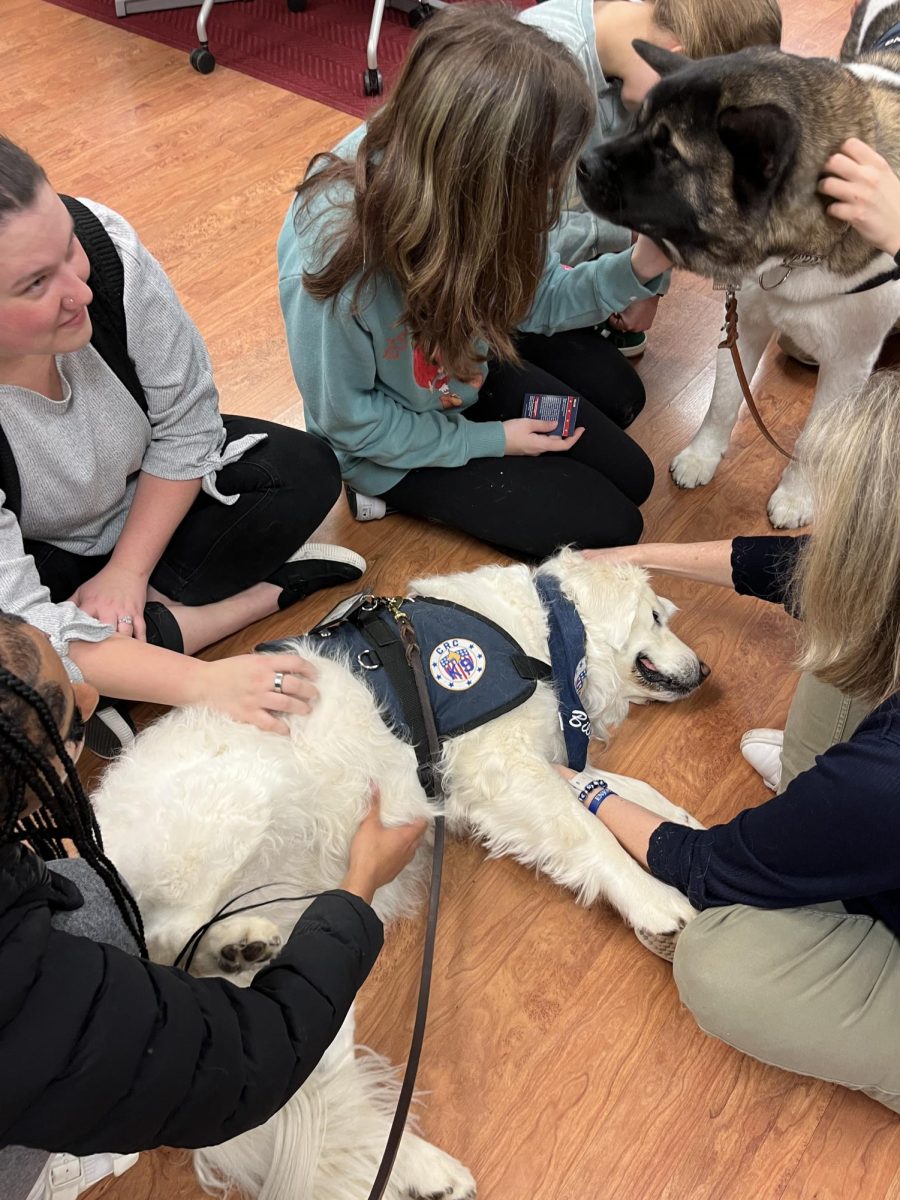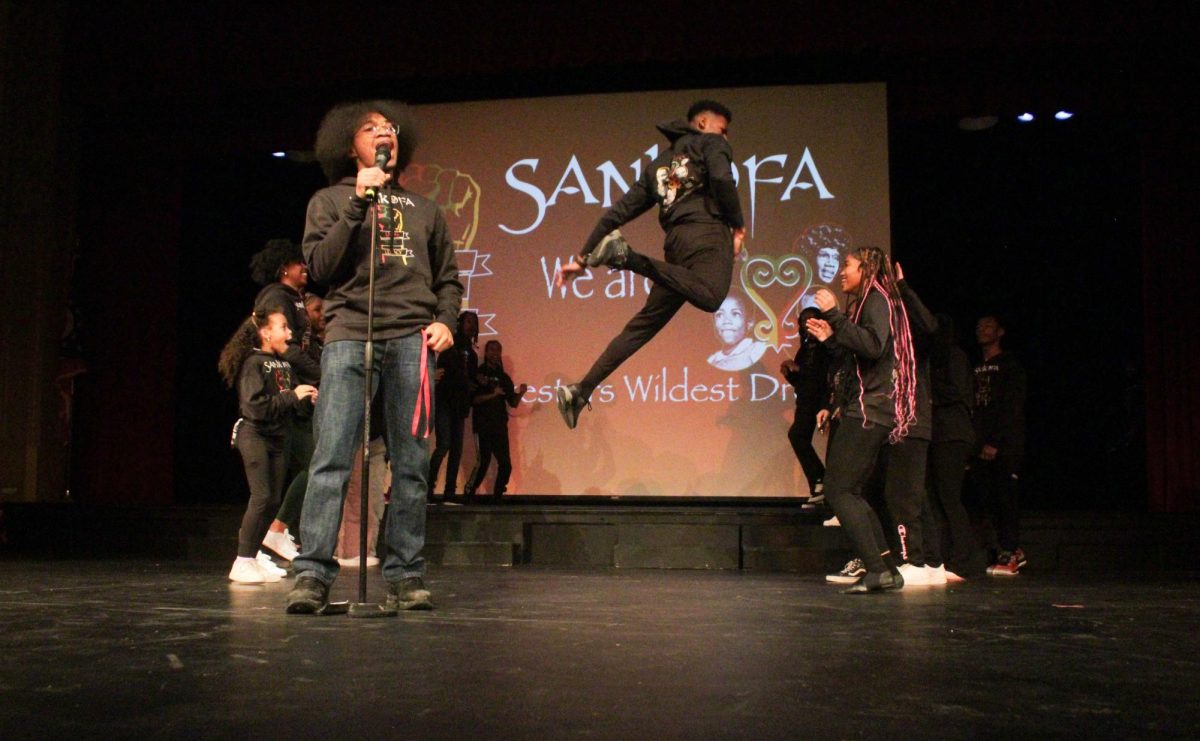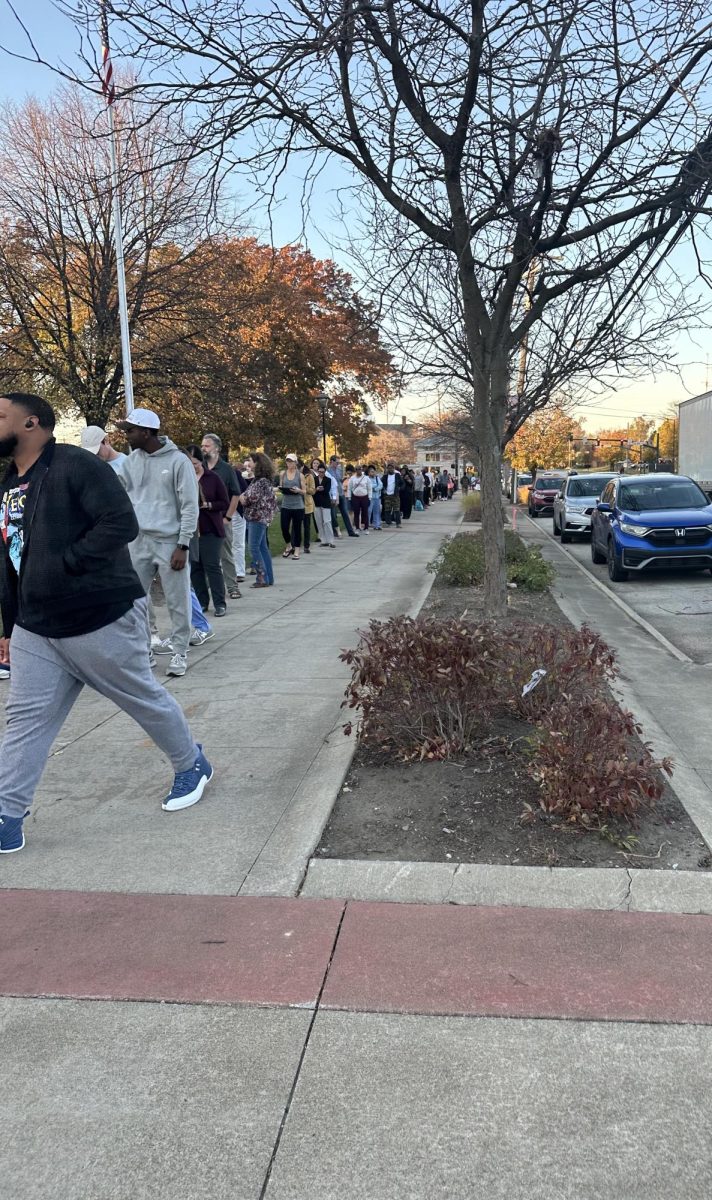“There is no way you uplift another without uplifting yourself,” the Rev. Nontombi Naomi Tutu told a diverse audience gathered in the large auditorium Jan. 29.
A South African public speaker and Episcopal priest, Tutu is the third daughter of the late Archbishop Desmond Tutu, who was awarded the 1984 Nobel Prize for Peace in recognition of his work to end apartheid in South Africa.
Students, teachers, parents, police officers and other community members attended the free event and responded with standing ovations. Junior Matthew Jones said that Tutu’s message was powerful because she spoke from personal experience with racial discrimination.
Tutu emphasized the importance of recognizing the humanity of others, even those who oppress you. She referenced the African philosophy ubuntu, a word that roughly translates to “I am because you are.” She also spoke about challenging your prejudices against other groups of people by “recognizing those tapes playing in your head and stopping those tapes.”
“Sometimes our move to ubuntu is baby steps,” Tutu said.
During the speech, audience members could write questions for Tutu on notecards, some of which she answered at the end. One came from a Black student asking for advice, who wrote that they were bullied and perceived as “weird” due to their interests. “Stand firm in who you are. People calling you weird is a gift,” Tutu said.
Tutu’s appearance at the high school was one piece of the event Beloved Community: Civil Rights to Human Rights, which was organized by the City of Shaker Heights, Shaker Heights Schools, Shaker Heights Public Library, the Shaker Heights PTO and the Shaker Schools Foundation. It comprised a live discussion with Cleveland State University history professor Donna Whyte, a library storytelling event and Tutu’s speech.
Before her speech, Tutu dined with Shaker students and staff. Some students who attended the dinner will participate in the South Africa Cultural Exchange this spring. Tutu said in an interview that Chief Diversity, Equity and Inclusion Officer Lawrence Burnley invited her to help students understand the connection between social movements in South Africa and the United States.
Freshman Anya Ustin said she will not participate in the exchange, but her interest in Tutu sparked after the PTO asked her to design this year’s MLK learning guide. “She really makes you think about things from another perspective,” said Ustin, “she’s incredibly insightful.”
“This is a historical moment for us here in Shaker Heights,” said Keith Langford, family and community engagement supervisor, at the dinner. After the meal, catered by restaurant Zanzibar Soul Fusion, Tutu answered questions from student moderators Ava Bribriesco and Jones.
She talked about growing up in South Africa as a Black person during apartheid; current issues that affect the country, such as inequality in healthcare, housing and schools; and how it should move forward.
She explained how her parents sent her to boarding school in Eswatini when she was a child in order to avoid a discriminatory education system, while the white children in her community attended a school down the street.
Tutu also advised young people who want to create positive change. “Take on something that you are especially passionate about because it all connects eventually,” she said. When activism becomes overwhelming, she said, take breaks and find a group of people who support you in your cause.
After moving to the United States, Tutu attended Berea College in Kentucky. She has taught at the University of Hartford, University of Connecticut and Brevard College in North Carolina and received four honorary doctorates from universities in the United States and Nigeria. She lives in Atlanta.
When it comes to improving how people think of Africa, Tutu said in an interview to seek opportunities to learn about the continent by reading African news and literary works, interacting with African immigrants, and even following African creators on social media. “This is an exceedingly beautiful country,” Tutu said of South Africa, “one of the most beautiful countries on the planet.”
Empathy is a Series of ‘Baby Steps’
Rev. Nontombi Naomi Tutu shares stories of her childhood in South Africa
February 7, 2024
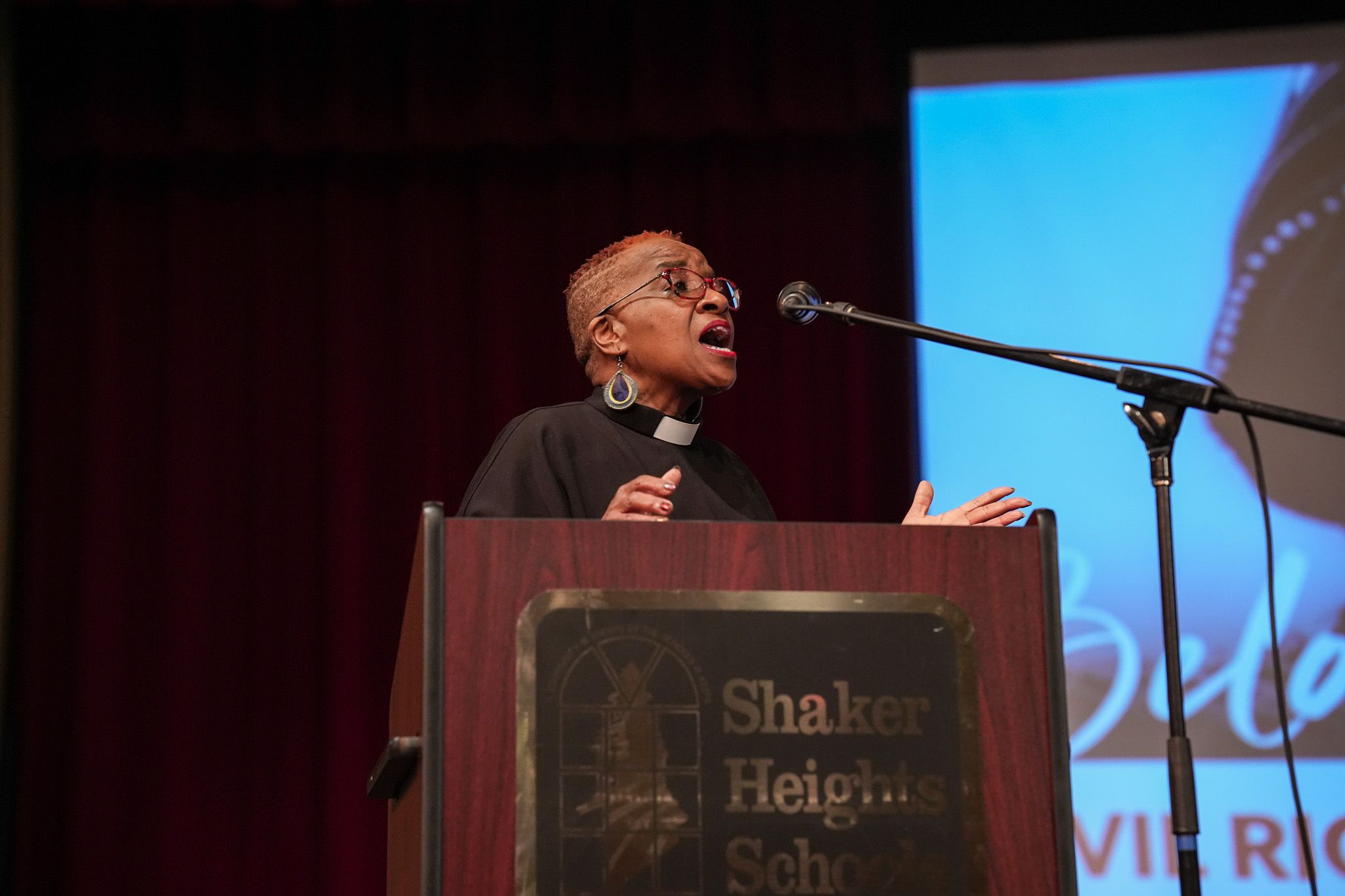
Tags:


